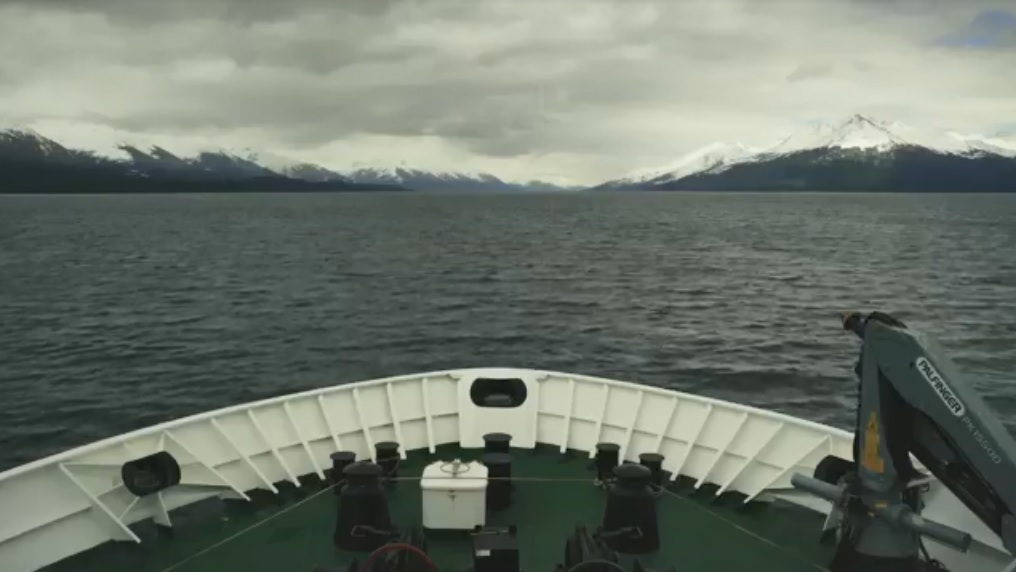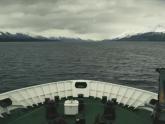The joint work contributes to have a better knowledge of the characteristics of the area, strengthen the presence of both countries in the subantarctic regions and contribute to the conservation of the natural resources of the Beagle Channel, in addition to knowing and fighting the effects of climate change.
The meeting was held last June 25 and was organized by Argentina in a virtual way due to the restrictions imposed by the COVID-19 pandemic.
The Argentine Delegation was chaired by Ambassador Daniel Filmus, Secretary of the Malvinas, Antarctica and the South Atlantic of the Ministry of Foreign Affairs, and was attended by representatives of the Ministry of Foreign Affairs, International Trade and Worship; of the Ministry of Science, Technology and Innovation; of the Ministry of Environment and Sustainable Development; of the National Parks Administration; the National Institute for Fisheries Research and Development (INIDEP in the Spanish acronym); of the Naval Hydrography Service; of the Southern Center for Scientific Research (CADIC-CONICET); and the Government of the Province of Tierra del Fuego, Antarctica and South Atlantic Islands.
For its part, the Chilean delegation was headed by Ambassador Roberto Ruiz Piraces, Director of Strategic Planning of the Ministry of Foreign Affairs of Chile, and included among its members representatives of the Ministry of Foreign Affairs; of the Ministry of Defense; of the Ministry of the Environment; of the Ministry of Science and Technology; of the Institute of Fishing Promotion; and the Research Center Dynamics of High Latitude Marine Ecosystems of Chile (IDEAL in the Spanish acronym).
The meeting was attended by the designated Ambassador of the Argentine Republic in Chile, Rafael Bielsa, and the Ambassador of the Republic of Chile in Argentina, Nicolás Monckeberg Díaz.
The Binational Commission aims to strengthen and facilitate permanent bilateral cooperation in the subantarctic areas of both countries and advance a common scientific agenda aimed at obtaining a greater knowledge of the respective maritime areas and contributing to the conservation of the natural resources of the Beagle Channel and marine ecosystems, as well as the fight against climate change.
During the meeting, opinions were exchanged on the preliminary results of the first joint campaign of marine scientific research carried out in November 2019 aboard the BIP Ship Víctor Angelescu of the National Institute for Fisheries Research and Development of Argentina, which allowed to verify the function of the Beagle Channel as a sink for carbon and deepen knowledge about the effects of climate change and marine acidification in the area.
In addition, it was agreed to advance in the development of a Work Plan 2021-2022 to continue with the implementation of joint scientific research activities by carrying out seasonal campaigns on small oceanographic vessels, the installation of fixed measurement equipment, and the exchange and shared analysis of the data obtained by each country.
The joint work contributes to having a better knowledge of the characteristics of the area, strengthening the presence of both countries in the sub-Antarctic regions, and knowing and fighting the effects of climate change.
Last, emphasis was placed on the socio-economic dimension of joint activities given the potential to positively impact local communities through deepening knowledge on the oceans and the impact of climate change in the region.
Finally, it was agreed that if the conditions derived from the COVID-19 pandemic allowed it, a face-to-face meeting would be held to adopt the Work Plan at the end of 2020 in Argentina and that the 4th Meeting of the Binational Commission will take place in Chile during the first semester of 2021.


